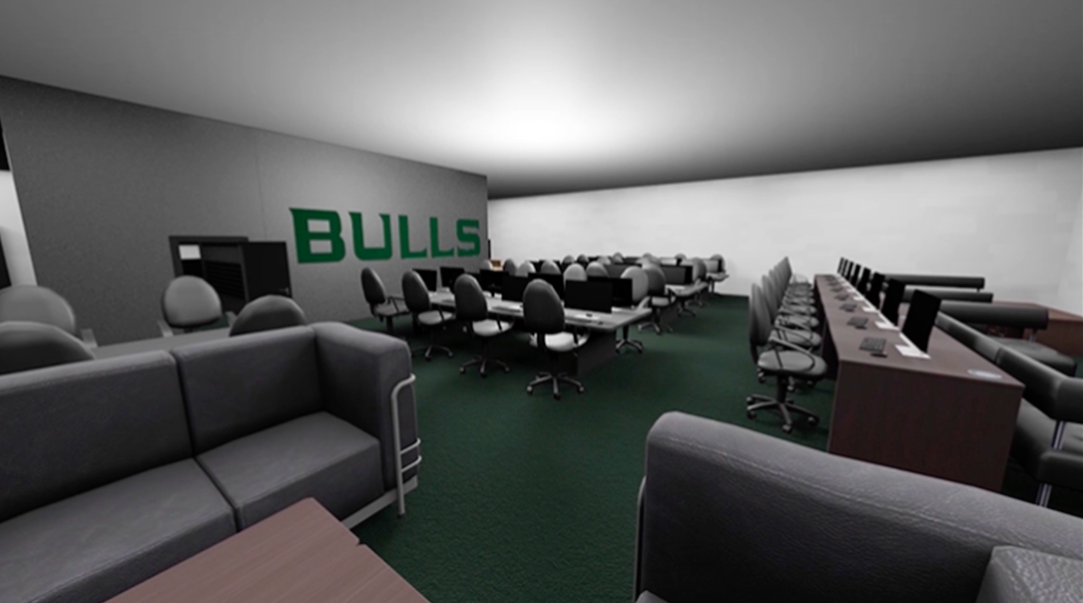Esports Living Lab project nearly doubles in cost, indefinitely delayed

The construction and opening of the USF Esports Living Lab are indefinitely delayed due to budgeting complications and increased product expenses, according to Antonio Gonzalez, assistant director of the sports programs and outdoor facilities.
Plans for the space entailed a 2,500-square-foot lab inside the Rec and was expected to cost about $500,000, according to a 2021 September Oracle article. Recent supply chain shortages and increased technology costs have escalated the price tag to about $900,000, Gonzalez said.
In the fall of 2021, the project received $368,000 from an approved Capital Improvement Trust Fund (CITF), which built upon the $177,000 raised by a 2018 technology fee, according to Gonzalez. The project’s original expected completion date was sometime during the spring semester but was delayed till August due to budgetary issues.
It’s possible the project could be sped up if they were to receive additional funding, Gonzalez said.
The current roadmap for the project includes three possible routes, according to Gonzalez. Either the university readjusts necessary funding from other areas, the scope of the plans is reduced or the plan is carried out in phases over time.
Gonzalez said that although the lab doesn’t have a clear trajectory, there is still progress being made. Just this month, over $150,000 worth of PC equipment has been ordered to mount 50 computer setups for the current space at the Rec room 005.
With these computers, Gonzalez said it may not act as permanent housing for esports organizations, but will allow them to collaborate in person for competition.
There’s also a silver lining to the delay, according to Gonzalez. Meetings with Student Success administrators have made the circumstances known and are advocating for the future of the afflicted clubs.
Plans will continue to unfold as the semester comes to a close and more attention is brought to the project, Gonzalez said. He said although the gaming communities may not have a strong physical presence on campus, they’ve been successful in cultivating one of the largest online collegiate followings in the nation and will eventually parlay that growth to the community.







